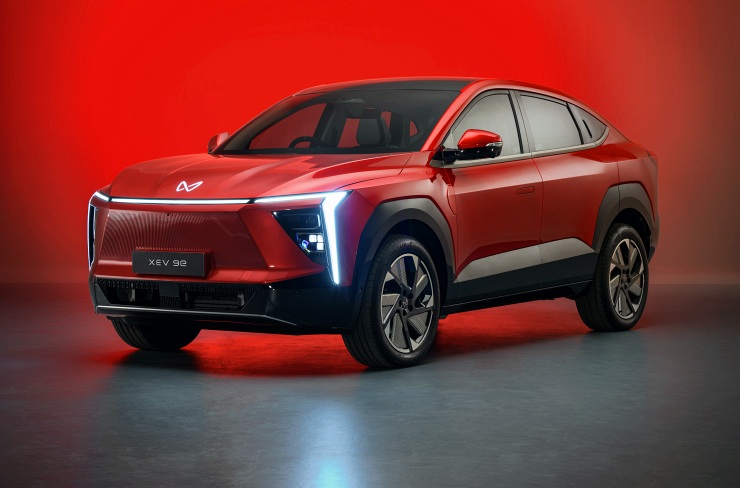So, you’ve got yourself a great idea, a few interested investors, and maybe the beginnings of a launch team. Now, you’ve just got to figure out how to go global (okay, only after you’ve gone local, then regional, then national, but you get the point).
These three startup tips will provide a solid foundation for your eventual takeoff. Just don’t forget about the little guys when you’re a massive success, alright?
Don’t Sweat the Small Stuff (Too Much)
According to our exact calculations, there are about a million things to think about when starting a business. Or was it a billion? Either way, it’s a lot, and probably too many.
You’ll never perfect every little detail—not if you want to launch your business before the next century, that is. Focus on big picture ideas (and trust that the rest will follow):
● Fine-tuning your minimum viable product or service
● Honing in on your target consumer market
● Calculating the product-market fit
● Formulating advertising strategies that cater to your market
● Putting the requisite systems in place (but only the most important ones, for now)
Once you’ve finalized your product line, launched a captivating website, and targeted the right customers, you can then focus on more microscopic logistics.
Hire People You Can Trust
We’re not just talking about people who are good at their jobs. That’s important, too—competence, innovation, intelligence, and so on—but it won’t mean much if you can’t trust your employees and collaborators to actually put their intellect to good use without your constant oversight.
But here’s the thing: it’s hard to trust someone you’ve never worked with.
- Don’t just rely on your gut—you probably don’t need the reminder, but chances are you’ve been wrong at least once before. Use external sources and data to check and double-check on any new employees or partners: Follow up on and seriously scrutinize your candidate’s references. Treat it like an interview of your candidate by proxy—ask detailed, probing questions that reflect how they’d fit into your new business model.
- Conduct an extensive background check on your candidate. There are many types of background checks, including identity, criminal, credit, professional license and education, and more. You don’t need to run them all, although that would definitely give you a detailed impression of your candidate’s professional and personal history.
- Do your own social media deep-dive, including Instagram, Twitter, and Facebook. Depending on their demographic, you may not find much, but a frequently-used Instagram page will tell you (almost) everything you need to know about someone—and definitely a few things they left off their resume. Just be careful the information you find doesn’t contribute to discrimination when it comes to your hiring choices.
Focus on Incremental (Not Instant) Success
Starting a business is a bit like surfing. Sometimes, you’ll sit on your board for a long time before a good wave comes—too long, you think to yourself. Maybe I should just go home?
But when you finally catch the perfect wave, you’ll be thankful you stuck it out.
Waiting for that wave is part of the process. And once you feel comfortable getting up on your board, you can start incorporating more complex and difficult tricks—stuff you’d never try during your first, or even fifth, surfing lesson.
This long-winded surf metaphor is all leading up to say, wait until your startup has gained some initial traction before you try expanding. Start with limited offerings (like items in only a few colors, designs, or configurations), focusing on quality, not quantity. Bit by bit, you’ll see increased web traffic and growing sales. Use these indicators as a sign to start scaling—slowly.
When you do start to experience real success, ride that momentum like a wave.
Get Started with Your Startup
The hardest part of starting a business is actually… starting. You can probably think of a million reasons to put it off—there’s too much competition, I’m so busy right now, the market might crash soon. If you try hard enough, you can convince yourself of almost anything.
Instead, take a shot at convincing yourself of all the reasons this startup is a great idea. Try positivity on for size and see just how nice it feels. With these tips, you’ll be off to a good start.
-
Mahindra XUV 9e Launching Soon in Nepal with a Price Tag Higher Than the BE 6HIGHLIGHTS Mahindra XEV 9e price in Nepal is expected to start at Rs. 77.65 Lakhs.…
-
Mahindra BE 6 Launching Soon in Nepal with Expected Premium PricingHIGHLIGHTS Mahindra BE 6 price in Nepal is expected to start at Rs. 76.30 Lakhs.…
-
Infinix Note 50x 5G+ Launched! The Most Affordable Phone with Dimensity 7300 in NepalHIGHLIGHTS The Infinix Note 50x 5G+ price in Nepal is Rs. 21,999 (6/128GB). It is…
















